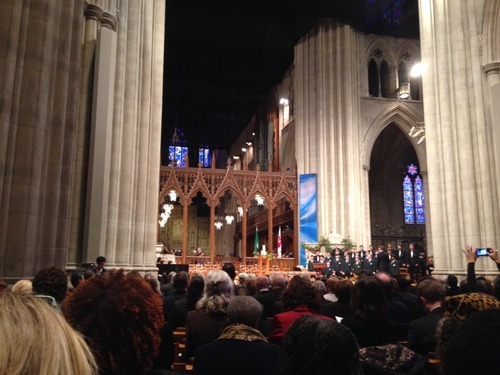By Anne Robinson
Last fall, Councilmember Grosso was appointed by the Chairman of the Council to serve on the D.C. Workforce Investment Council (WIC). As the staff member assigned to this issue, I began to research and understand the history of the D.C. WIC and I found it to be fascinating. It has a tangled history, both on the national level and here at home. The important theme throughout is how integral a role it plays in steering our residents down the employment path. I hope you will join me on my journey down the path to better understanding how employment services operate in the District.
The functions of the D.C. WIC are largely defined by requirements in the federal Workforce Investment Act (WIA). The mission of WIC is to oversee the creation and improvement of services and programs that address the workforce development needs of the region's employers and the District's residents. Members are authorized to advise the Mayor and District government on all functions designated to the WIC. The Deputy Mayor for Planning and Economic Development (DMPED) has administrative oversight of the WIC on behalf of the Mayor. So, where did WIA come from?
In the 1930s, unemployment insurance programs were created to combat the impacts the Great Depression had on employment. Throughout the proceeding decades, the federal government developed new plans and policies that expanded unemployment insurance benefits to also address displaced workers and job training. As time went on, responsibility for the unemployment insurance programs slowly shifted from federal control to being administered more on the state and local level. In 1998, the Workforce Investment Act was implemented with the goal of further authorizing states to provide employment and training services through federally-funded workforce development programs and One-Stop Job Centers (now referred to as American Jobs Centers). The Job Centers provide career counseling and planning, resume and interview assistance, direct job placement, classroom and on-the-job training, access to a jobs bank, information about labor markets, and unemployment compensation.
WIA mandated that all states create Workforce Investment Boards (WIB) to implement policies at the state and local levels for the workforce programs. The D.C. Workforce Investment Council (WIC) was created in accordance to WIA that same year.
By statute, the Board must be comprised of members of the business community, directors from agencies receiving federal workforce dollars, and two members of the D.C. Council. The legislative intent of WIA is for the WIB/WICs to approve the spending and business plans for One-Stop operators and report compliance metrics to the U.S. Department of Labor (DOL). Unfortunately, the intent was not fully realized under both the Williams and Fenty Administrations. Since their inception, the D.C. One-Stops have been solely operated and managed by the Department of Employment Services (DOES). DOES was supposed to report to the WIC who is the responsible body reporting to DOL under federal law. This did not happen. DOES has not been in full compliance with DOL standards for operating the One-Stops since 1998 and the authority granted to the WIC was largely ignored.
In 2012, Mayor Gray began to implement the WIA required DC Workforce Development Strategic Plan 2012-2016. To date, the strategic plan has been a necessary cornerstone to move workforce development in the right direction. The plan includes reinvigorating the WIC, getting DOES in compliance with DOL, and getting more residents back to work. Over the past 2 years, the WIC Board has worked diligently to bring DOES management of the D.C. American Jobs Center to a higher compliance standard. This is being done through a newly adopted business plan and strong oversight of DOES by the WIC.
As we continue to learn and track the employment system we intend to continue sharing with you what we discover. DOES will have their annual oversight hearing before the Committee on Business, Consumer, and Regulatory Affairs on Wednesday, February 26 at 10:00 am in Room 500 of the John A. Wilson Building. We urge you to engage by watching, testifying, or sending us your questions so we can ask them for you.
*This post is part of an ongoing series of posts by Councilmember Grosso’s staff to support professional development. All posts are approved and endorsed by Councilmember Grosso.






